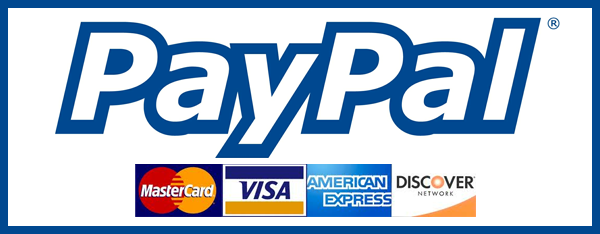eMoov – moving away from expensive estate agents, a digital revolution in the UK property industry
It will come as a relief to all those looking to buy or sell a home. Sharp practices such as gazumping could be a thing of the past, according to the founder of the first low-cost online estate agent, which is undercutting its bricks-and-mortar competitors.
Russell Quirk’s digital business eMoov charges a flat fee of £395 plus VAT per sale, as opposed to the 1pc to 2pc fees quoted by the likes of Foxtons or Savills.
But for the Essex-born estate agent, who sold a Belsize Park home to comedian couple David Mitchell and Victoria Coren a month ago, low cost does not mean poor quality or cheap tricks.
“It’s the easiest job in the world,” Quirk said. “And answering the phone and being professional is not worth a £6,000 fee.”
The father-of-three explained that “being economical with the actualite” about how many buyers are interested in a property to drive up offer prices, or over-valuing a home in order to secure a listing – perceived to be the trademarks of the industry – are a result of over-inflated transaction fees.
“The stakes are so high, it encourages agents to be economical with the truth, creating this wide-boy image and encouraging things to go wrong,” he said.
Significantly cheaper than the big property companies, eMoov employees don’t need to “deceive, fib and fight,” said Quirk, who comes from a long line of property agents.
eMoov rose from the ashes of the last housing market meltdown after Quirk’s traditional, five-branch estate agency collapsed.
“I should have learnt my lesson,” he said, having watched his father fail to save his grandfather’s 900-branch estate agent operation.
“When the recession hit, I was caught out. Like most independent estate agents, we lived month to month and money was spent on fast cars and number plates.”
Collapsing transaction levels could not sustain the £60,000-a-month wage bill, the office rents or business rates, so in 2009 Quirk had to let a third of his staff go and returned to doing visits and valuations himself.
Eventually Quirk consolidated his last two offices, selling off one, which put £25,000 in his pocket to turn his “lightbulb moment” into reality.
“The rug was pulled from under the feet of the UK estate industry, but it provided an opportunity,” he recalled. “I realised that estate agents no longer needed geographic locations, people weren’t visiting local estate agent offices – they didn’t care where you were based.”
The market was becoming more intelligent thanks to the property portals Rightmove and Zoopla, which between them attracted 15m visitors every month, despite the credit crisis.
“Within 24 hours of deciding to sell a home, it can be listed on Rightmove, reaching millions of people,” he said. “These portals have become the shop window for estate agents.”
So in June 2010 he set up from his Basildon living room in a tough property market with transaction levels still low.
“It was like jogging with rocks on your back,” Quirk said. “And I wasn’t doing enough volume.”
So he started driving traffic through search engine optimisation, paying for Google ad words and pay per click.
“We were a brand-new concept and, with just 25 properties registered, we had to prove to people that we were credible, so we pushed social media to show people what we were about. If we listed a property, we shouted from the rooftops about it and chased referrals, recommendations and testimonials to get critical mass.”
The goal was to list 100 properties, a target that was achieved in 2011, and at that level things started to get easier.
Currently 1,400 are listed on the eMoov website and next month the business will report a £1m turnover, with sales forecast to double over the next 12 months.
“We carry out exactly the same process as bricks and mortar estate agents, apart from we don’t do viewings,” he said. “But this is not standard practice outside the capital.”
For just a few hundred pounds, online estate agents, of which there are now a number of different brands, will take photographs, create floor plans, advise on the price and market the property on all the main property portals.
The seller is becoming more intuitive, using empirical data on value per square foot to make their own mind up about the valuation of the property.
“Once we’ve offered our valuation, based on the historic data, we let the seller decide what to put it on for,” said Quirk.
“The seller is also in a far better position to advise potential buyers on schools, the community and council tax than Johnny, the estate agent from the nearest branch.”
With so much information readily available, the mystique of the estate agent is rapidly vanishing.
“People now know how long a property has been on the market – the mystery is gone and therefore these companies cannot justify charging such high fees,” he said.
Quirk conceded that there will always be a desire for a good local agent who does everything on a silver platter, for which some people will be willing to pay high fees.
But it is not necessarily the mega rich who demand such a service, he continued.
Savvy, high-end property owners, used to handling investments and in control of their finances, are far less likely to be bamboozled by agents.
“Last month we sold a four bedroom, semi-detached in Muswell Hill,” he said. “The asking price was £1.4m and we sold it for £1.35m. This was a saving of fees of £19,630 for the vendor.”
With three main online estate agents now operating in the UK, there is a revolution coming, he continued.
“But the industry doesn’t seem to realise it.”
This year eMoov was in discussions with traditional property company Countrywide, which was considering making an investment.
“They didn’t know what to do with us,” said Quirk. However, an investment announcement is just round the corner.
Quirk is happy where his business is now, showing how a digital revolution can create new businesses.
The overheads are low, his business operates from one central office instead of seeking a physical presence on several different high streets and he doesn’t splash out on massive advertising campaigns.
“I just picked myself up and dusted myself off,” he said. “After all, out of problems come opportunities.”
Source – Anna White, The Telegraph UK






No comments yet.